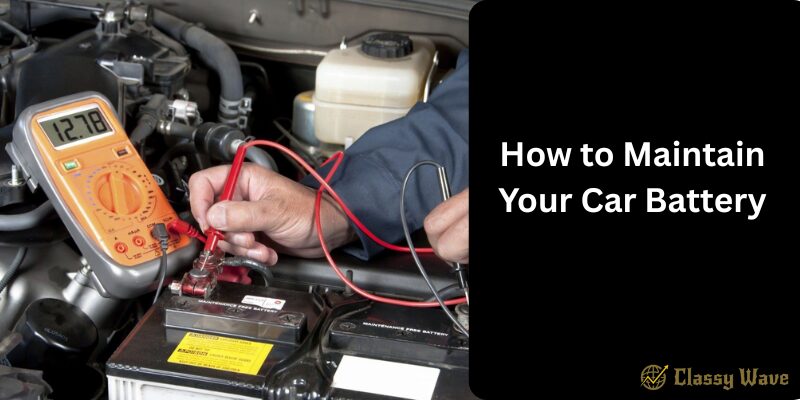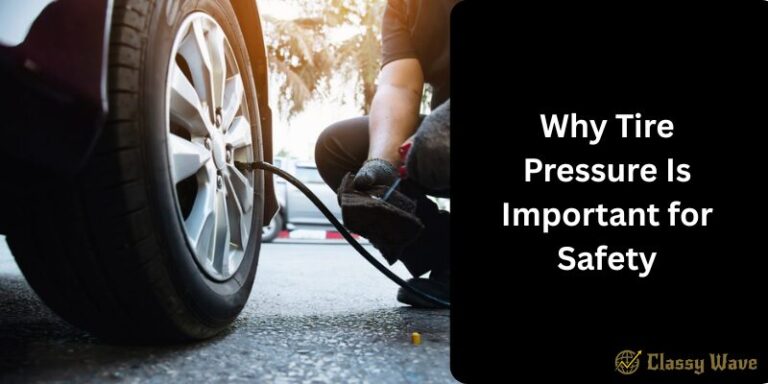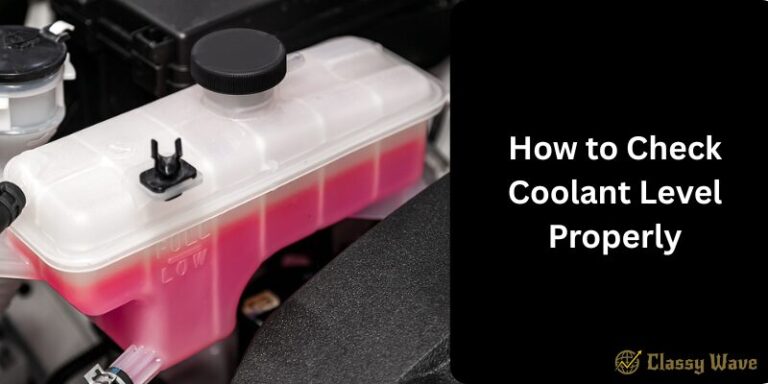How to Maintain Your Car Battery | Classy Wave
Your car battery is the heart of your vehicle’s electrical system. Without it, your engine won’t start, lights won’t work, and you’ll be left stranded at the worst possible moment. Maintaining your car battery might seem technical, but it’s actually simple when you know what to do. With regular care, you can extend your battery’s life, improve performance, and avoid unexpected breakdowns.
Understand the Role of the Car Battery
Before learning how to maintain it, it’s important to understand what your car battery does. It provides the necessary power to start the engine and supports electrical systems like headlights, air conditioning, and the radio when the engine isn’t running. Once your car is on, the alternator recharges the battery.
Check Your Battery Regularly
Routine inspection helps you catch early signs of trouble. At least once a month, open the hood and visually check your battery. Look for corrosion, loose cables, or swelling — all signs that your battery might need attention or replacement soon.
Keep the Battery Clean
Dirt, grime, and corrosion can weaken the connection between your battery terminals and cables. Use a mixture of baking soda and water with a toothbrush to gently scrub away any buildup. Rinse with clean water and dry thoroughly before reconnecting.
Inspect Battery Terminals and Cables
Loose or corroded terminals are a common reason for starting problems. Make sure the battery cables are tightly connected and free from rust or corrosion. A small layer of petroleum jelly on the terminals can prevent future buildup.
Drive Your Car Regularly
If your car sits idle for too long, the battery slowly discharges. Short trips don’t allow enough time for the alternator to fully recharge it. Aim to drive your car for at least 20–30 minutes once or twice a week to keep the battery charged and healthy.
Avoid Frequent Short Trips
Constant short drives cause your battery to lose charge faster than it can recover. If you mostly use your car for short distances, consider using a battery maintainer or trickle charger to keep it fully charged between trips.
Check the Battery Voltage
Use a voltmeter or multimeter to test your battery’s voltage. A healthy car battery should read around 12.6 volts when the car is off and 13.7 to 14.7 volts when the engine is running. Anything significantly lower may indicate it’s time for a recharge or replacement.
Keep Battery Terminals Tight
Vibration from driving can loosen battery connections over time. Regularly check and tighten the terminals to ensure a secure fit. Loose connections can cause starting issues or even damage the battery.
Avoid Using Electronics When Engine Is Off
Listening to music, using interior lights, or charging devices when your engine is off can drain the battery. Try to minimize this habit, especially if your battery is older or weak.
Protect Your Battery from Extreme Temperatures
Both hot and cold weather can affect battery performance. In hot climates, check fluid levels frequently, as heat causes water evaporation. In cold weather, make sure your battery is fully charged — weak batteries struggle to start engines in freezing conditions.
Top Off Battery Fluid (If Applicable)
Some older car batteries are not sealed and may require you to check and refill the electrolyte levels. Use only distilled water to top it off, and avoid overfilling. Modern maintenance-free batteries don’t require this step.
Use a Battery Charger or Maintainer
If you don’t drive your car often, a smart battery charger or maintainer can keep it charged automatically. It helps prevent battery discharge during long periods of inactivity — perfect for cars stored during winter or travel.
Test Your Battery During Routine Service
During oil changes or maintenance checks, ask your mechanic to test the battery’s condition. Professional testing can detect weak cells or low capacity before they lead to failure.
Replace Your Battery When Needed
Even with proper maintenance, car batteries typically last 3–5 years. If your headlights dim, your car cranks slowly, or you notice corrosion frequently, it might be time to replace the battery before it leaves you stranded.
Dispose of Old Batteries Properly
Never throw old car batteries in the trash. They contain harmful chemicals and should be recycled at an auto shop or recycling center. Many shops offer discounts for exchanging old batteries when buying new ones.
Conclusion
Maintaining your car battery isn’t complicated — it just takes a few minutes of attention every month. Regular cleaning, secure connections, and periodic testing can keep your battery performing efficiently for years. Remember, prevention is always better than an unexpected breakdown. Keep your battery in top condition, and your car will thank you with reliable starts every time.







